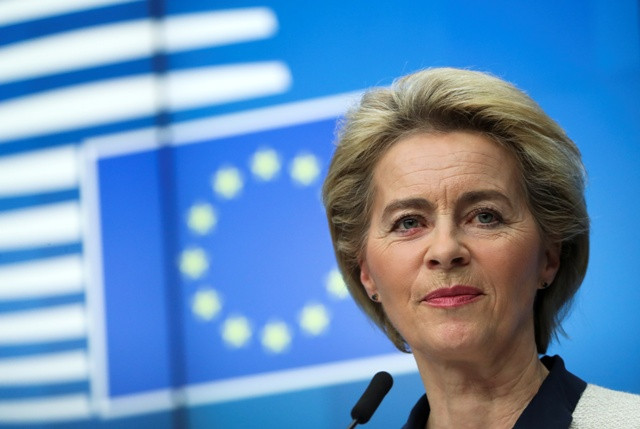The European Union (EU) harshly denounced president Donald Trump for his continuing spate of lies after using the bloc as a scapegoat to deflect attention away from his failure to contain the COVID-19 pandemic in the United States early on.
In a speech on Wednesday widely reviled in Europe, Trump basically accused the EU of worsening the impact of COVID-19 in the U.S. He assailed the EU for allegedly not taking the same actions he had taken to control COVID-19, which he described as a "foreign virus."
"As a result" of Europe's inaction, "a large number of clusters" of coronavirus "were seeded by travelers from Europe," in the U.S., said Trump in this uncalled for criticism of a major U.S. ally.
This unhinged rant confirmed Trump' subsequent announcement suspending all travel from Europe to the U.S. for next 30 days was a punishment for this sin. Exacerbating perceptions he intended his travel ban to hurt the EU is Trump's announcement only the United Kingdom -- whose prime minister Boris Johnson is a Trump ally -- is exempt from the travel ban. Trump's relations with the EU's top leaders, chancellor Angela Merkel of Germany and president Emmanuel Macron of France, have remained adversarial for years.
Trump said he decided on the travel ban, which takes effect midnight Friday, in order to "keep new cases from entering our shores."
"We will be suspending all travel from Europe to the United States for the next 30 days. The new rules will go into effect Friday at midnight. These restrictions will be adjusted subject to conditions on the ground," said Trump.
"These prohibitions will not only apply to the tremendous amount of trade and cargo, but various other things as we get approval. Anything coming from Europe to the United States is what we are discussing," said Trump.
The Department of Homeland Security (DHS) later identified the banned countries as thos comprising the Schengen Area: Austria, Belgium, Czech Republic, Denmark, Estonia, Finland, France, Germany, Greece, Hungary, Iceland, Italy, Latvia, Liechtenstein, Lithuania, Luxembourg, Malta, Netherlands, Norway, Poland, Portugal, Slovakia, Slovenia, Spain, Sweden, and Switzerland.
On Friday, EU leaders issued a withering denunciation of Trump's decision to bar many Europeans from traveling to the U.S. amid the coronavirus pandemic. They took Trump to task for admitting he hadn't told the Europeans about the ban beforehand because he was lazy.
"We get along very well with European leaders, but we had to make a decision and I didn't want to take time and, you know, it takes a long time make the individual calls and we are calling and we had spoken to some of them prior to (the announcement)," said Trump.
The EU called out that statement as a lie, noting that Trump only had to make one call to the European Commission (EC) headquarters in Brussels, Belgium. Communicating with the EU won't require Trump to call to each of the bloc's 27 Member-States but only the EC, which is the executive branch of the EU responsible for proposing legislation, implementing decisions, upholding the EU treaties and managing the day-to-day business of the EU.
The EU also took Trump to task for claiming he was "in frequent contact with our allies." The president of the European Council, Charles Michel, and the president of the European Commission, Ursula von der Leyen, affirmed Trump gave the EU no advance notice of his decision.
In a joint statement, they said "the European Union disapproves of the fact that the US decision to impose a travel ban was taken unilaterally and without consultation."
They also said the coronavirus pandemic is a global crisis, "not limited to any continent and it requires cooperation rather than unilateral action."
A top European diplomat confirmed to CNN the EU only received word of the ban literally moments before the speech. He said the EU was given no further information by Trump.
Sen. Mitt Romney, a Republican senator from Utah, said he doesn't understand why banning travel from Europe is necessary given the COVID-19 coronavirus is already established in the U.S.
"I'm not quite sure why that's an important part of this," said Romney.






